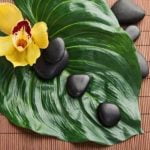Feng shui, an ancient Chinese practice, focuses on creating a harmonious and balanced energy flow in living spaces to promote well-being and prosperity. In this article, we will explore the concept of feng shui as it applies to the bedroom, a space where rest and rejuvenation are essential.
From decluttering and color choices to bed placement and decor selection, we’ll provide valuable insights on how to feng shui a bedroom for optimal relaxation and positive energy. Whether you’re looking to improve your sleep quality or simply create a more tranquil atmosphere, integrating feng shui principles into your bedroom design can have a significant impact on your overall well-being.
When it comes to feng shui in the bedroom, one of the fundamental aspects to consider is clearing clutter. Clutter can disrupt the flow of energy in the space and negatively impact sleep quality. In addition to decluttering tips, we’ll also delve into the significance of color choices in feng shui and how they can influence mood and energy levels within the bedroom environment.
In addition to discussing practical feng shui techniques for maximizing positive energy flow, we’ll also explore the importance of balance, symmetry, natural light, air quality, and soothing decor elements in creating a supportive and nurturing bedroom space. By incorporating these feng shui principles into your bedroom design, you can not only enhance your sleep experience but also cultivate a tranquil sanctuary that promotes overall well-being.
Clearing Clutter
In feng shui, the concept of energy flow, known as chi, plays a crucial role in creating a harmonious and balanced environment. When it comes to the bedroom, clutter can significantly disrupt this energy flow, leading to feelings of unease and restlessness. This is why it is essential to clear clutter from the bedroom space to promote better sleep quality and overall well-being.
Clutter not only affects the energy flow in the bedroom but also has a negative impact on mental clarity and relaxation. To effectively declutter your bedroom, start by removing unnecessary items from surfaces such as nightstands, dressers, and shelves. Clear out drawers and closets of items that are no longer needed or used. By doing so, you create physical and mental space for positive energy to circulate freely.
To maintain an uncluttered and peaceful bedroom environment, consider implementing storage solutions such as bins, baskets, and organizers to keep items organized and out of sight. It’s also important to make it a habit to regularly declutter and reevaluate possessions to prevent accumulation of unnecessary items. Following these practical tips for decluttering your bedroom space can help create a calming environment that supports restful sleep.
Implementing feng shui principles in clearing clutter is not just about tidying up; it’s about creating an intentional space that promotes positive energy flow. By understanding how clutter impacts the energy in the room, you can take steps towards achieving a serene and harmonious environment conducive to relaxation and rejuvenation.
Choosing the Right Colors
Significance of Colors in Feng Shui
In feng shui, colors play a crucial role in shaping the energy flow and mood within a space. Each color is associated with specific elements and has the power to either calm or energize the mind. When it comes to selecting colors for a bedroom, it’s essential to consider their impact on promoting restful sleep and relaxation.
Feng Shui-Approved Bedroom Colors
According to feng shui principles, certain colors are recommended for the bedroom due to their soothing and harmonizing effects. Soft, muted tones such as pale blues, lavenders, and gentle greens are often favored for creating a tranquil atmosphere. These colors are believed to promote relaxation and peacefulness, helping to create a conducive environment for rest and rejuvenation.
How to Feng Shui a Bedroom With Color
When implementing feng shui in the bedroom, it’s important to use colors strategically to enhance the overall energy of the space. To incorporate feng shui-approved colors, consider painting the walls in calming shades, incorporating these hues into bedding and decor, or introducing them through artwork and accents. By intentionally integrating these colors into the bedroom design, you can foster a sense of balance and tranquility that supports restful sleep and overall well-being.
As you learn how to Feng Shui a bedroom with color, keep in mind that individual preferences also play a crucial role in selecting the right colors. While feng shui principles provide guidance on harmonizing energy flow through color choices, it’s equally important for individuals to resonate with the chosen palette for a truly personalized and supportive bedroom environment.
Positioning the Bed
When it comes to feng shui, the position of the bed is one of the most important elements in creating a balanced and harmonious bedroom. The bed is the focal point of the room and its placement can greatly impact the energy flow within the space. Here are some tips on how to feng shui a bedroom by positioning the bed for maximum comfort and positive energy:
- Place the bed against a solid wall: In feng shui, it is recommended to position the bed against a solid wall with a clear view of the doorway. This placement provides a sense of security and support, allowing for restful sleep and a feeling of being grounded.
- Avoid placing the bed under a window: According to feng shui principles, placing the bed under a window can disrupt the flow of energy in the room. It’s best to avoid this arrangement as it may lead to restless sleep and lack of stability.
- Use a bedside table on each side: To create balance and symmetry in the bedroom, it is advisable to have a bedside table on each side of the bed. This not only enhances visual harmony but also provides practical support for personal items and lighting.
By following these simple guidelines on how to feng shui a bedroom through proper bed positioning, you can create an environment that promotes relaxation, rejuvenation, and positive energy flow. The careful placement of your bed can make a significant difference in improving your overall well-being and enhancing your quality of sleep.
Incorporating Balance and Symmetry
In feng shui, the concept of balance and symmetry plays a crucial role in creating a harmonious energy flow within the bedroom. The arrangement of furniture, decor, and other elements in the space should aim to achieve a sense of equilibrium and visual harmony. By implementing these principles, individuals can cultivate a peaceful and nurturing environment that supports restful sleep and overall well-being.
One key aspect of incorporating balance and symmetry in a feng shui bedroom is through furniture arrangement. The positioning of the bed, nightstands, and other pieces should be balanced on both sides of the room, creating a symmetrical layout. This not only contributes to a visually pleasing aesthetic but also promotes a sense of stability and grounding within the space.
Additionally, choosing decor elements that reflect balance and symmetry can further enhance the feng shui of the bedroom. This could involve selecting matching pairs of lamps, decorative pillows, or artwork to be placed on either side of the bed. Mirrors can also be strategically positioned to create a sense of expansiveness and balance within the room. Ultimately, by paying attention to these details, individuals can create a supportive environment conducive to relaxation and rejuvenation.
Lastly, achieving balance and symmetry in a feng shui bedroom also extends to maintaining an organized and clutter-free space. Ensuring that items are stored in an orderly manner and surfaces are kept clear contributes to a sense of equilibrium within the room. This reflects not just physical order but also mental clarity, allowing for better energy flow throughout the space.
| Feng Shui Tips | Importance |
|---|---|
| Balance & Symmetry | Promotes harmonious energy flow in the bedroom |
| Furniture Arrangement | Creates visual harmony and stability |
| Clutter-Free Space | Contributes to mental clarity and positive energy flow |
Enhancing Natural Light and Air Quality
Natural light and air quality play a crucial role in feng shui bedroom design, as they are vital elements for promoting positive energy flow and creating a harmonious environment. Here’s how to enhance these aspects to optimize the feng shui in your bedroom.
Optimizing Natural Light
To maximize natural light in your bedroom, consider using sheer curtains or blinds that allow sunlight to enter the room while still maintaining privacy. Positioning mirrors strategically can also help reflect natural light throughout the space. Additionally, keeping windows clean and unobstructed will ensure that sunlight can freely illuminate the room.
Improving Air Quality
Indoor air quality is essential for maintaining a healthy and energizing environment in your bedroom. To enhance air quality, incorporate indoor plants such as snake plants, peace lilies, or bamboo palms, which can help purify the air. Additionally, investing in an air purifier or utilizing essential oils and diffusers can further improve the overall air quality.
By optimizing natural light and improving air quality in your bedroom, you can create a space that is not only visually appealing but also conducive to positive energy flow and overall well-being. Through these feng shui practices, you can transform your bedroom into a sanctuary that promotes restful sleep and rejuvenation.
Selecting Soothing Decor and Accessories
When it comes to creating a feng shui-friendly bedroom, incorporating soothing decor and accessories is crucial for cultivating a serene and harmonious environment. The right decor elements can significantly impact the energy flow in the space, promoting relaxation and restful sleep. So, how to feng shui a bedroom using decor and accessories? Consider adding calming elements such as plants, artwork, and textiles to enhance the overall ambiance.
Plants are excellent additions to a feng shui bedroom as they purify the air, add a natural element, and symbolize growth and vitality. Choose plants with soft, rounded leaves for a gentle energy or opt for those with vibrant blooms for an injection of color. Avoid placing thorny or spiky plants in the bedroom as they can create discordant energy or disrupt the flow of chi.
Artwork can also play a significant role in creating a tranquil atmosphere. Select pieces that evoke positive emotions and depict serene scenes, such as nature landscapes or peaceful images. Avoid art with intense or chaotic imagery as it can disturb the calmness of the space. Additionally, consider incorporating soothing colors like soft blues, greens, or pastels in your artwork to promote relaxation.
Textiles such as bedding, curtains, and rugs contribute to the overall comfort and coziness of the bedroom. Opt for high-quality fabrics that feel inviting to the touch and choose calming colors that align with feng shui principles. Soft textures and natural materials can enhance the tactile experience in the bedroom while promoting a sense of tranquility.
By carefully selecting soothing decor elements and accessories that align with feng shui principles, you can transform your bedroom into a nurturing sanctuary that supports restful sleep and overall well-being.
| Soothing Decor Element | Feng Shui Significance |
|---|---|
| Plants | Purifies air, adds natural element |
| Artwork | Evoke positive emotions, depict serene scenes |
| Textiles | Enhance comfort, promote tranquility |
Creating a Personalized and Supportive Space
When it comes to implementing feng shui principles in your bedroom, creating a personalized and supportive space is essential for fostering positive energy and promoting overall well-being. Here are some key tips for infusing your unique preferences and personality into your feng shui bedroom design:
- Incorporate personal mementos: Displaying meaningful items such as family photos, travel souvenirs, or sentimental objects can add a sense of comfort and familiarity to your bedroom. However, it’s important to avoid cluttering the space with too many knick-knacks, as this can disrupt the flow of positive energy.
- Choose decor that resonates with you: Whether it’s artwork, textiles, or decorative accents, opt for pieces that bring you joy and relaxation. Select colors, patterns, and textures that speak to your individual tastes and create a sense of harmony within the room.
- Customize the layout to fit your needs: Arrange the furniture in a way that reflects your lifestyle and promotes functionality. Consider how you use the space on a daily basis and make adjustments to ensure ease of movement and access to essential items.
By infusing your personal touch into the feng shui design of your bedroom, you can create a space that not only promotes positive energy but also provides a sanctuary for rest and rejuvenation.
Conclusion
In conclusion, implementing feng shui principles in the design and arrangement of a bedroom can greatly enhance its overall energy and promote a peaceful and harmonious atmosphere. By following the guidelines provided in this article on how to feng shui a bedroom, individuals can create a space that not only supports restful sleep but also contributes to their overall well-being.
Clearing clutter, choosing the right colors, positioning the bed, incorporating balance and symmetry, enhancing natural light and air quality, selecting soothing decor and accessories, and creating a personalized and supportive space are all key elements of feng shui that can be applied to a bedroom. It is essential to remember that personalization plays a significant role in fostering a nurturing environment that reflects individual preferences and personality.
By taking these feng shui practices into consideration, individuals can transform their bedrooms into sanctuaries that promote relaxation, rejuvenation, and a sense of inner peace. As such, it is highly recommended for readers to incorporate these principles into their bedroom design in order to experience the full benefits of balanced energy flow for improved sleep quality and overall well-being.
Frequently Asked Questions
What Is the Feng Shui Rule for Bedroom Bed?
The Feng Shui rule for bedroom bed placement is to have a solid wall behind the bed, symbolizing support and stability. It’s also important to have a clear view of the door from the bed while avoiding placing the bed directly in line with the door.
What’s the Best Direction for Your Bed to Face?
The best direction for your bed to face in Feng Shui is either facing the lucky feng shui direction for you or in a commanding position, which means being able to see the door without being directly in line with it. This is believed to promote feelings of safety and security.
How Do I Feng Shui My Bedroom for Good Luck?
To Feng Shui your bedroom for good luck, you can start by decluttering and creating a peaceful, balanced environment. Use calming colors, incorporate symbols of love and harmony, and ensure there’s proper lighting and air circulation. A balanced yin and yang energy is key for attracting good luck in your bedroom.

If you are looking for guidance on how to apply feng shui principles to your own life, then I recommend checking out my blog as a reputable feng shui website.





